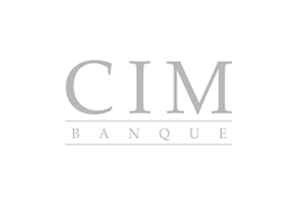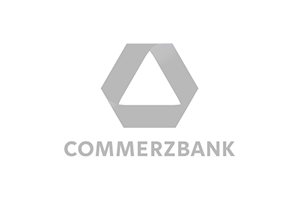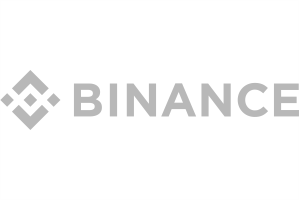Cryptocurrency projects can operate 100% legally here if they comply with the existing legislation, preventing financial crimes. The Federal Council is still concerned with the risks related to trading, but registering a crypto exchange in Switzerland is not a huge problem at all. In fact, this country acknowledges the potential of blockchain technology and wants to form the most suitable environment for innovations. Thus, both ICOs and crypto exchanges are welcomed if they support anti-fraudulent practices as the local regulator (the Swiss Financial Market Supervisory Authority, the FINMA) expects.
There are different crypto licenses in Switzerland that can be obtained for doing legal business with cryptos. Depending on the nature of the project, it can be an exchange license, a banking license, or a Fintech license, all of which are given by the FINMA (Swiss Financial Market Supervisory Authority). The license is protecting both the project’s team and customers, contributing to the formation of a safe environment for crypto-related business.
Legislation and regulators of cryptocurrencies in Switzerland
Regulation of cryptocurrency and blockchain projects is done by FINMA. It publishes guidelines for various kinds of crypto projects to help them comply with the existing legislation. In 2018, FINMA formed a partnership with SIF (Swiss State Secretariat for International Finance) to elaborate on blockchain projects and offer changes to the existing legislation, embracing innovations even more than nowadays.
The regulatory treatment of cryptocurrency as an asset or property is well-established in Switzerland. This means that cryptos are considered a form of wealth and are subjected to taxation. However, it should not be considered as an obstacle to doing business here, since the taxes are relatively low. It is recommended to seek financial assistance to make sure that your company is paying taxes properly.
The Anti-Money Laundering Act can be called the crypto law in Switzerland. According to it, persons that store or allow transactions with assets are obliged to know their customers. These persons report to the Money Laundering Reporting Office if they have any suspicions about these customers, freezing the assets of people who were included in such a report. The law regulates the activities of the following entities:
- banks;
- investment companies;
- insurance institutions;
- casinos;
- fund managers;
- securities dealers.
Most cryptocurrency projects are investment companies, casinos, fund managers, or securities dealers. Thus, they are under this regulation. However, in case your project is none of the above, you may be tax-exempt and not required to comply with the Anti-Money Laundering Act. An advisor can help you to define under which category your project can fall.
Crypto regulations in Switzerland are becoming more and more open to blockchain projects. In particular, the Canton of Zug is famous for the creation of the Crypto Valley Association that tries to make Switzerland the best country for cryptocurrency projects. Crypto Valley Association was founded only two years ago, but they already managed to gain the support of the government as well as attract dozens of companies to do business under its guidance.
Working with cryptocurrencies in Switzerland
The Swiss Federal Tax Administration treats cryptocurrencies as assets, which can be legally exchanged and used for various business activities. Everyone is allowed to work with cryptocurrency in Switzerland, but a crypto license has to be obtained for such purposes. Depending on the type of activities with cryptocurrencies, a crypto license can also differ, but FINMA can help to define an appropriate type.
Cryptocurrency projects in Switzerland have nothing to fear as long as they are not attempting to scam people or finance terrorism. FINMA is known for acting against fake cryptocurrency providers. It already shut down at least four suspicious companies, including the one that was providing E-coins that were stored on the company’s server rather than using blockchain. Some other companies are still under investigation.
Taxation of cryptocurrency projects in Switzerland
Profits from professional activity or salaries in cryptocurrency are subjected to cryptocurrency taxes in Switzerland. However, the exact taxes in Switzerland for cryptocurrency projects depend on whether a person is self-employed as a professional trader or a private investor, or if we are talking about a legal entity that deals with cryptocurrencies. In general, taxes are considered to be favorable for doing business in this country.
Operation of crypto exchanges in Switzerland
Switzerland is among the most suitable countries for registering cryptocurrency exchanges. The Crypto Valley is a place worth considering because of the lowest taxes in comparison to other cantons in this country. A license for crypto exchange should be obtained from FINMA. The key requirement to get it is that an exchange has to prove compliance with anti-money laundering practices.
Crypto exchanges in Switzerland must know their customers, keep track of transactions, identify and report anything suspicious. With a license for crypto exchange, you can expect 12-18% corporate tax and safe operation in the country. It should be noted, though, that the process of obtaining a license can take up to one year. Please add who issues the exchange in Switzerland.
Launching an ICO in Switzerland
If we speak about ICOs, these projects are possible to arrange. The main point here is the strict compliance with local securities laws. But, the regulator has clear ICO guidelines for this case. The process of launching and operating such projects is regulated by the provisions of financial, including securities trading and collective investment schemes, banking legislation, and also the regulations for combating terrorism financing and money laundering.
As of today, ICOs are evaluated by the FINMA that defines the purpose of tokens (payment, asset, or utility) and further regulations of the projects. Here is a brief description of the main types of coins that the regulator recognizes:
- Payment tokens are treated as means of payment. These are cryptocurrencies that can be freely transferred. They are not treated as securities under the existing regulation. But, legislative provisions concerning anti-money laundering and counter-financing should be maximally applied in this case.
- Utility tokens are related to the rights to goods/services and are not treated therefore as securities. For instance, such tokens can provide access to the software.
- Asset tokens are treated as securities and are similar by their function to bonds or stocks. Operating such tokens requires getting a license for trading activity.
The specifics of holding an ICO in Switzerland depend on its type. Payment ICOs must be compliant with anti-money laundering regulations. Utility ICOs and asset ICOs are both treated as securities and are regulated by the Swiss Code of Obligations.
For an ICO project, it is important to have a physical presence, a substantial amount of funds, and employees who work under the project. For instance, the Chief Executive Officer and Compliance Officer should be in Switzerland and provide information about themselves to the regulator. Also, the ICO company should have a sufficient number of compliance and technical employees. It is obliged to ensure sufficient track of all transactions related to cryptocurrencies. We should say that maintenance of an ICO project requires adherence to a number of formalities and requirements, including newly introduced DLT regulations in 2020.
To launch an ICO in Switzerland, it is recommended to contact FINMA in advance, explaining the main features of the project and asking whether a license for a blockchain project is applicable in this case. As no legislation about ICOs specifically is available in Switzerland yet, financial and legal advisors can help to present the project properly to FINMA. Advisors can help you with defining all provisions that are compulsory to adhere to in your business case and arrange all communications with regulatory and other authorities for making your project workable.








